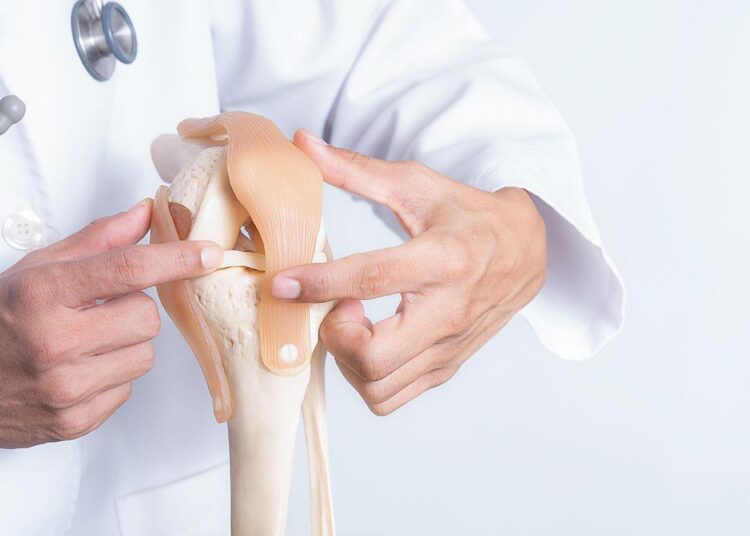What does a clinical pathologist do?
- Written by: Department Of Pathology
- Published: February 8, 2021
- 4 min Read
Clinical pathologists are special healthcare workers who have experience in lab activities, clinical pathologists. They have in-depth knowledge of how to diagnose the disease, their prevention, and treatments. They are in charge of all the specific departments that include hematology, toxicology, microbiology. Plus, they also take care of immunology, serology, blood bank, and clinical chemistry and biology. Clinical pathologists also look after the research data to maintain the records of quality control and information system.


Clinical pathologists are also physicians who specialize in the field of diagnosis and with the help of laboratory tests, they manage diseases on the basis of the researches. They are an essential part of the treatment procedures, as they are in charge of providing accurate information about the patients by examining the patients’ samples. Patients will never see a clinical pathologist during the treatment period.
Clinical Pathologists Specification
There are various specifications which the Clinical pathologists look into:
- Sample testing: They collect and stores a sample of blood, urine, or other body fluids in the laboratory for examining later. The pathologist examines the sample with the help of various diagnostic tools and under the microscope as well. They note the level of chemicals or any other material present in the body; accordingly, they make a report that further helps decide the treatment procedures.
- Manage blood bank: Clinical pathologists also manage the blood banks in the hospitals. They look after collecting the types of blood, and the further management of the blood is also under their hands. If there is any transfusion reaction, they need to find the exact cause of it. Moreover, if anybody requires the blood for any transplant, they need to check the tissues’ compatibility for the transplant.
- Diagnosing disease: Clinical pathologists are in charge of diagnosing various diseases; anatomic pathology is one. Its is the study of tissues, tumour, and other organs. They investigate the aftereffect of the disease by running autopsies and microscopic examination. This examination of cells, tissues, and other body organs is known as anatomic pathology.
- Cytopathology: It is another branch of clinical pathology where the doctor are in charge of studying cells and everything related to it. They monitor the cellular changes, diagnose the diseases and accordingly make the report of it.
- Foreignsic: Foreignsic pathologists are pathologist who performs autopsies to find out the cause of death. They check if there are any signs of poisoning or injury in the body before death. They also check if there was any effect of diseases. This procedure basically needs legal authorization for performing it over a human body. This procedure is possible only by collecting the medical evidence of death; it is a law enforcement investigation that needs special permission.
- Study of DNA and RNA: Genetics is also known as molecular pathology. It is a testing of nucleic acids, a diagnosis that people opt to check the hereditary disorders in the body. It is to determine the causes of the diseases depending on the theory, technologies, and molecular biology principles.
Different Samples Used for Clinical Pathology
The different samples used for clinical pathology are:
- Blood samples – You can use blood for conducting many tests. Basically, it can help to know what the fluids contain after removing the red blood cells and white blood cells called plasma. Moreover, you can use it for checking clear fluids that are the only thing after separating them from the blood clots, which is called serum. The doctors generally take blood samples with the syringe’s help and sometimes from the tip of the figure by pricking it and squeezing the blood out of it. After the process, the doctor stores the blood samples in a clean syringe or bottle.
- Urine samples – Urine sample helps in conducting various tests. For the process, the doctor collects the samples by using different methods. They can manage it by using an unexpected way where a person can urinate in any clean container. Therefore, it is essential to clean the outer surface of the container before collecting urine in it. A sterile urine test is also a method where the tube is inserted inside the urethra that goes directly into the bladder to collect the urine.
- Stool and spectrum samples – Spectrum samples are human cough which the doctor collects in a clean container. You can also cough it directly into the container. At the same time, the doctor collects the stool in a clean plastic container. This sample helps the pathologists with the diagnosis process to check the level of chemicals present in it.
- Other samples – There are several body fluids that the pathologists collect depending on the problem’s area. The testing fluids may include spinal fluid, belly fluid. Furthermore, pleural fluids, joint fluids, and bone marrow are some other fluids that the doctor can use for lab testing to identify the course of diseases.
Pathology is learning or studies of diseases; it creates a flyover between medicine and science. It helps to diagnose the condition of the patient accurately, and accordingly, the medication is provided. This process is the first step of the diagnosis process. The health workers who are working as pathology are experts in diagnosing diseases and illness. Pathologists are also very helpful in preventing diseases that might cause severe issues in the future.
You can approach clinical pathologists for several activities from diagnosing the samples to maintaining the informative data. They are in charge of every single thing related to the sample till the final result. Sometimes they can even prescribe general medicine for minor causes. They never come in contact with the patients directly. But they are well aware of the precautions that they should maintain according to the diseases.
Conclusion
Clinical pathologists are in charge of the special divisions in the laboratory where they manage different work. The study of clinical pathology takes about four years to complete. They undergo training sessions where they receive training for all the latest tools and types of equipment that help diagnose a sample. A skilled pathologist will help you know the exact cause of the diseases, and accordingly, you can proceed with the medication process. The whole procedure depends on the clinical results.
Related Read
What does a clinical pathologist do?
Clinical pathologists are special healthcare workers who have experience in lab activities, clinical pathologists. They have in-depth knowledge of how to diagnose the disease, their prevention, and treatments.
Warning: Trying to access array offset on value of type null in /home/drr41ih765mp/public_html/wp-content/plugins/jblog-elements/includes/class/elements/views/view-abstract.php on line 142
Warning: Trying to access array offset on value of type null in /home/drr41ih765mp/public_html/wp-content/plugins/jblog-elements/includes/class/elements/views/view-abstract.php on line 142
Warning: Trying to access array offset on value of type null in /home/drr41ih765mp/public_html/wp-content/plugins/jblog-elements/includes/class/elements/views/view-abstract.php on line 142
Warning: Trying to access array offset on value of type null in /home/drr41ih765mp/public_html/wp-content/plugins/jblog-elements/includes/class/elements/views/view-abstract.php on line 142
Warning: Trying to access array offset on value of type null in /home/drr41ih765mp/public_html/wp-content/plugins/jblog-elements/includes/class/elements/views/view-abstract.php on line 142
Warning: Trying to access array offset on value of type null in /home/drr41ih765mp/public_html/wp-content/plugins/jblog-elements/includes/class/elements/views/view-abstract.php on line 142
Warning: Trying to access array offset on value of type null in /home/drr41ih765mp/public_html/wp-content/plugins/jblog-elements/includes/class/elements/views/view-abstract.php on line 142
Warning: Trying to access array offset on value of type null in /home/drr41ih765mp/public_html/wp-content/plugins/jblog-elements/includes/class/elements/views/view-abstract.php on line 142
Related Posts
The Importance of Orthopedic Care: How it Impacts Your Quality of Life
The Importance of Orthopedic Care: How it Impacts Your Quality of Life Introduction In the pursuit of a fulfilling life, ...
“Stay cool, stay safe: Beat the heat, avoid heat stroke.”
Department by: Internal Medicine Last Read: 4 min ago As the temperatures rise during the hot summer months, it's important ...
Sudden Onset (Sensorineural) Hearing Loss
Department by: ENT Last Read: 4 min ago As the name suggests, it’s a sudden rapid and unexplained loss of ...
Retinitis pigmentosa and its effect on the quality of life
Retinitis pigmentosa and its effect on the quality of life: On one fine day in our ophthalmic clinic, a father ...






